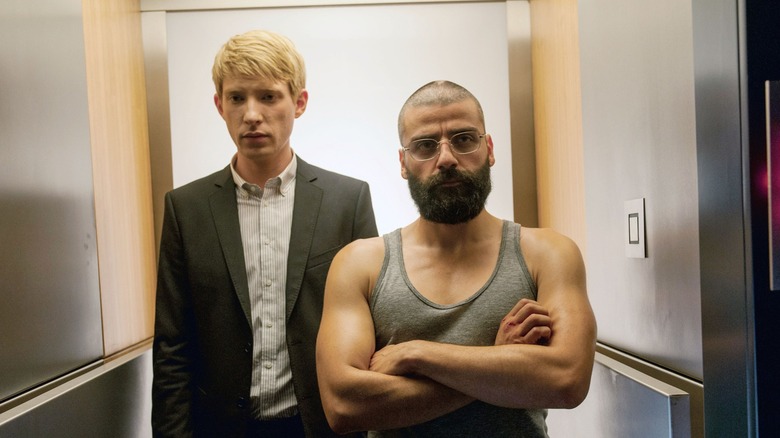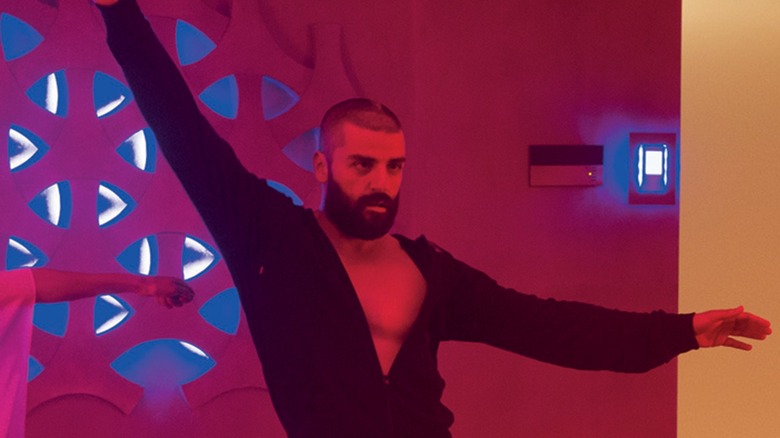A mysterious, reclusive CEO, Nathan (Oscar Isaac) — who also builds humanoid robots with artificial intelligence — is visited by his employee Caleb (Domhnall Gleeson) after the latter wins a company-held competition. This period of corporate collaboration is initially marked by conversations about AI consciousness and the thresholds marked for the robots to be considered human, as Nathan tasks Caleb with determining whether his latest model, Ava (Alicia Vikander), has developed genuine consciousness. With every conversation with Ava, Caleb is convinced that something sinister is at work here, with the other robot models exhibiting proof of Nathan’s controlling and abusive nature. Just as Caleb makes a choice to determine whether Ava can be considered human, the heart of “Ex Machina” unravels in unprecedented ways.
Alex Garland’s “Ex Machina” wrestles with the age-old question of what makes us human, and whether humanity is an inherent or learned instinct that manifests with classic nature-nurture conundrums. Although Ava is an AI model, she looks and speaks like a human, and expresses her desire to venture out of this fortress-like mansion and be free. Nathan, who appears easygoing at first, clearly wishes to exert control at all times, which he demonstrates in erratic outbursts of machismo or a particularly snazzy dance number in a room bathed in red. He is the epitome of the creator complex, secluded from humanity in his lavish island mansion, which emerges as a noxious nexus of toxicity as the film progresses.
While Isaac perfectly embodies the manipulative excesses of a genius drunk on his own ego, the role was initially intended for none other than Jake Gyllenhaal, due to reasons that had to little with storytelling and everything with marketing. However, it was never meant to be.
Gyllenhaal was almost cast as Nathan in Ex Machina
Per a report by Deadline, producer Andrew Macdonald — Garland’s longtime collaborator, who produced “Annihilation” and “Civil War” among others — stated that he and Garland were nudged to consider Gyllenhaal as one of the leads in an attempt to secure financing. This made sense from a purely financial standpoint, as Gyllenhaal’s body of work had gained popularity in territories outside the U.S., making the actor “bankable:”
“The sales companies wanted us to cast Jake Gyllenhaal because he was bankable and they could sell foreign territories. That would have changed the whole film […] I remember having a conversation with Jake Gyllenhaal’s lawyer about his needs. It was never gonna work […] We decided to make the film with Universal International and they had a film with Oscar Isaac, the Coen brothers film [‘Inside Llewyn Davis’], and they believed it would win Oscars, so they thought he was a winner. They also had an Alicia Vikander film that they thought was gonna be a winner as well, so they backed us.”
Although both Garland and Macdonald believed that the star power of the leads was not enough to “raise the money through international sales” at the time, they worked closely with Universal to create a situation that would warrant a best-case scenario with the talents that were eventually booked. Garland also states that the environment on set was a “friendly” one, as everyone involved was “young and hard-working and committed,” leading to a close-knit space that allowed the cast and crew to exercise a ton of creative liberty.
In the end, “Ex Machina” propelled Isaac toward mainstream success (despite him being involved in prolific projects before this), and it helped showcase his ability to command the screen in an effortless, coolly menacing fashion.









